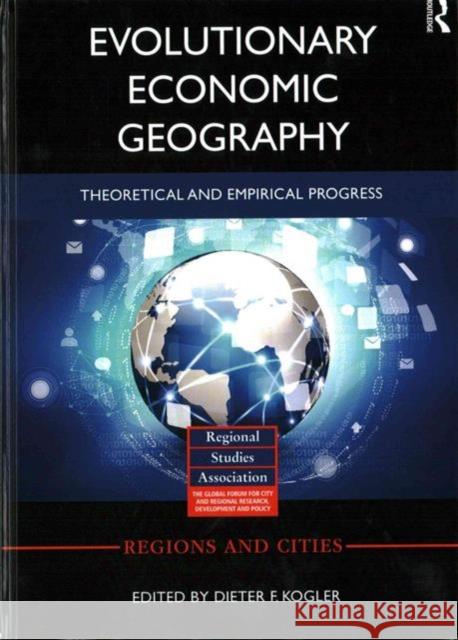Evolutionary Economic Geography: Theoretical and Empirical Progress » książka
Evolutionary Economic Geography: Theoretical and Empirical Progress
ISBN-13: 9781138953185 / Angielski / Twarda / 2015 / 200 str.
Evolutionary Economic Geography: Theoretical and Empirical Progress
ISBN-13: 9781138953185 / Angielski / Twarda / 2015 / 200 str.
(netto: 720,05 VAT: 5%)
Najniższa cena z 30 dni: 654,86
ok. 16-18 dni roboczych.
Darmowa dostawa!
Economic geographers increasingly consider the significance of history in shaping the contemporary socio-economic landscape and believe that experiences and competencies, acquired over time by individuals and entities in particular localities, to a large degree determine present configurations as well as future regional trajectories. Attempts to trace, understand, and investigate the pathways from past to present have given rise to the thriving and exciting sub-field of Evolutionary Economic Geography (EEG).
EEG highlights the important factors that initiate, inhibit, or consolidate the contextual settings and relationships in which regions and their respective agents, which comprise and shape economic activity and social reproduction, change over time. It has at its core the production and destruction of novelty in space, and the links between innovation and regional economic fortunes. The creation of knowledge, its movement and recombination within different regional ensembles of economic agents and institutions plays a critical role in the evolution of the space-economy. EEG provides a framework to disentangle the complexity of technological change and regional economic development based on a variety of theoretical and methodological approaches.
In only a short time, EEG has established itself as a promising and rapidly evolving research framework with its focus on the driving forces of regional development across various scales and its attempt to translate findings into public policy. This book advances the theoretical foundations of EEG, and demonstrates how EEG utilises and operationalises conceptual frameworks, both established and new. Contributions also point to future research avenues and extensions of EEG, attempting to build stronger ties between theory, empirical evidence, and relevance to policy. This book was originally published as a special issue of "Regional Studies."











